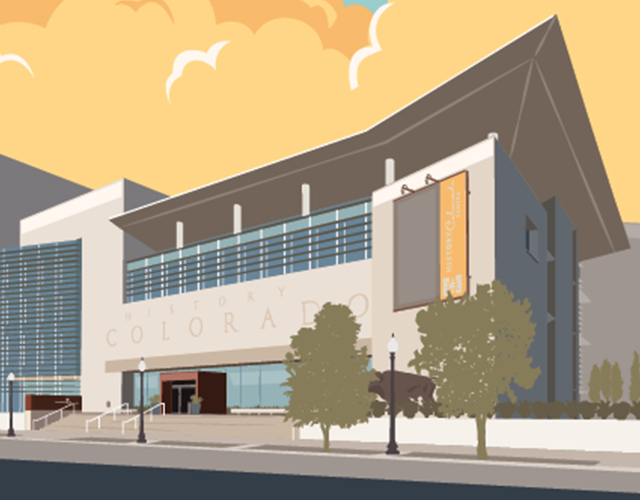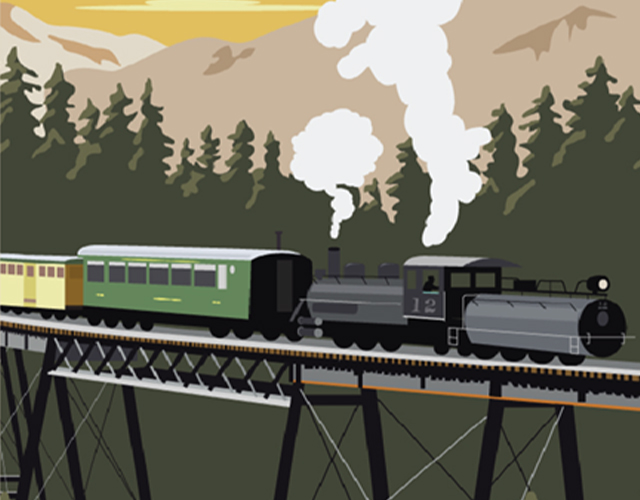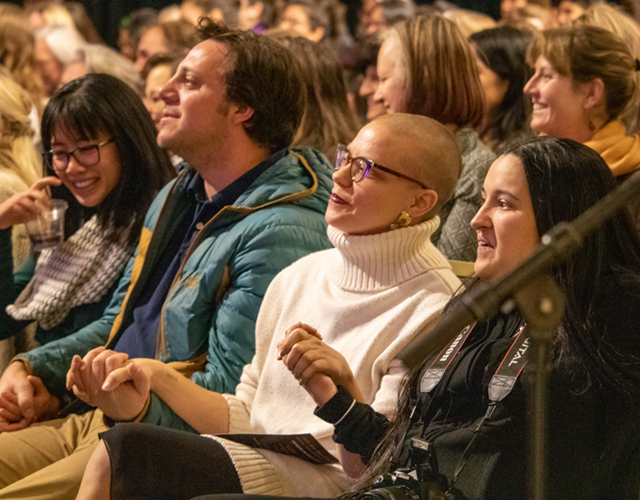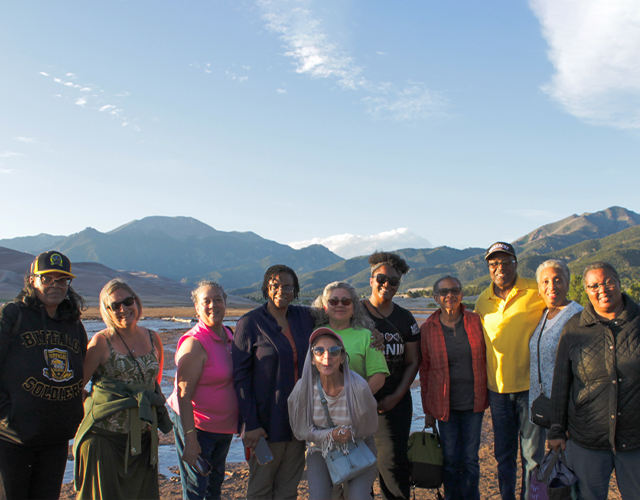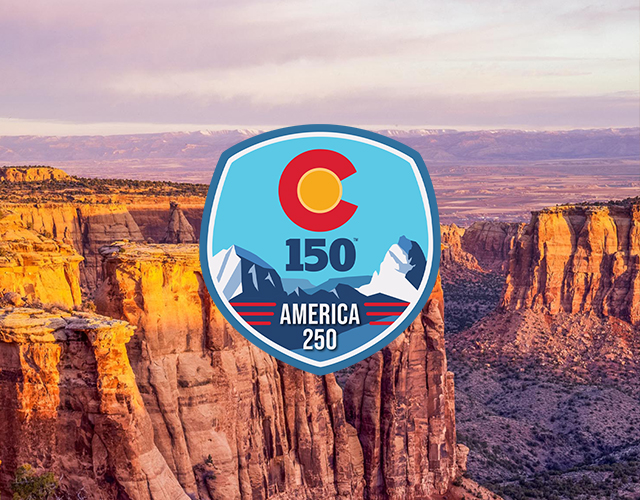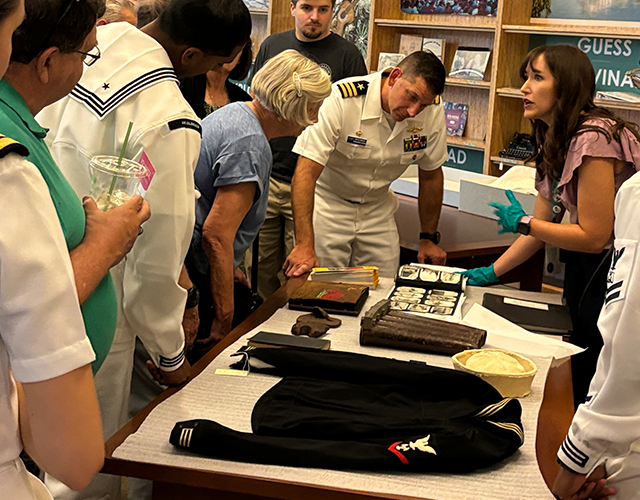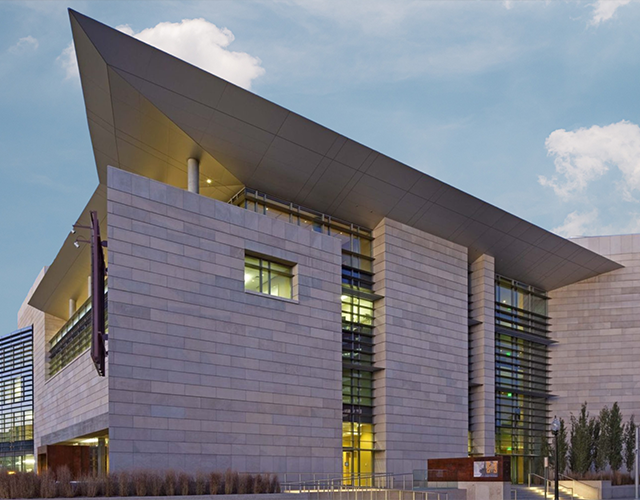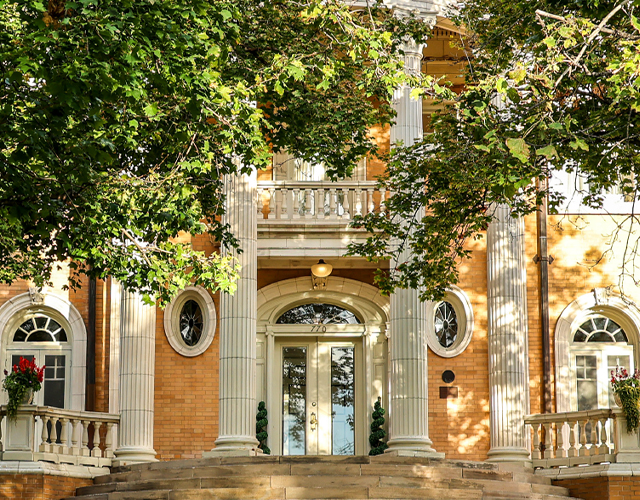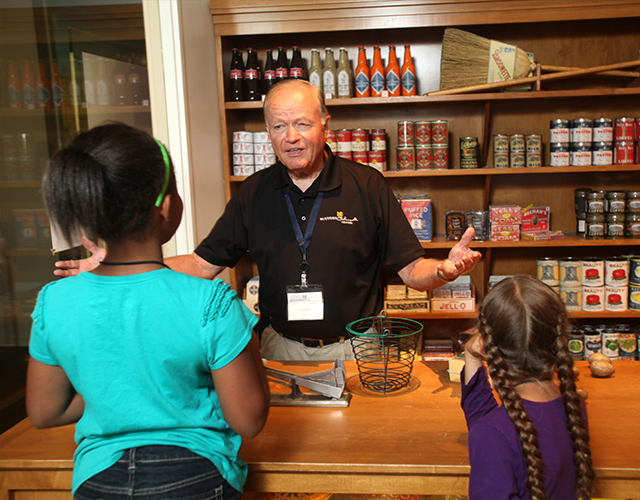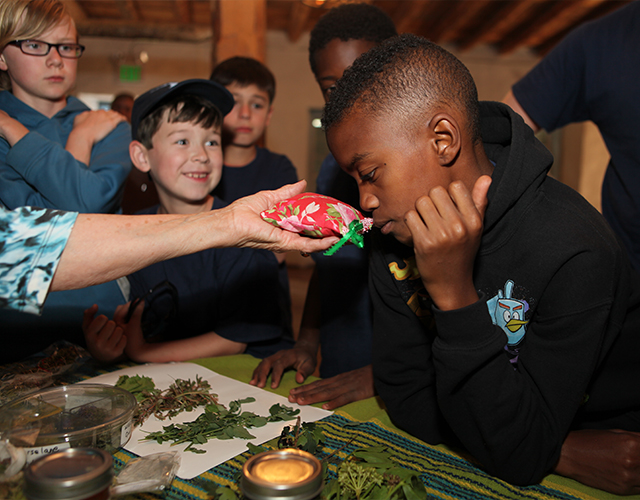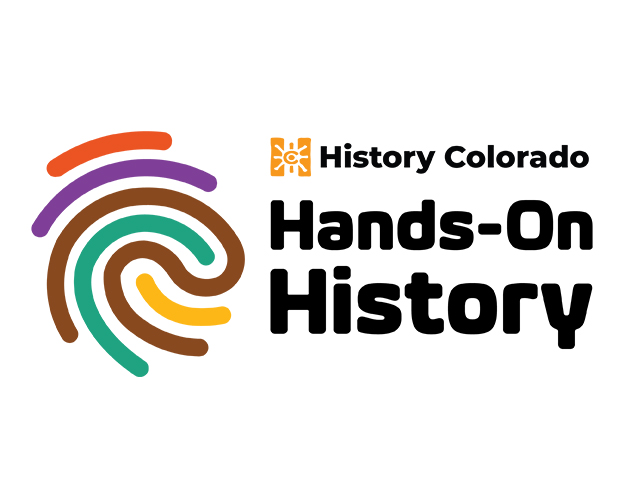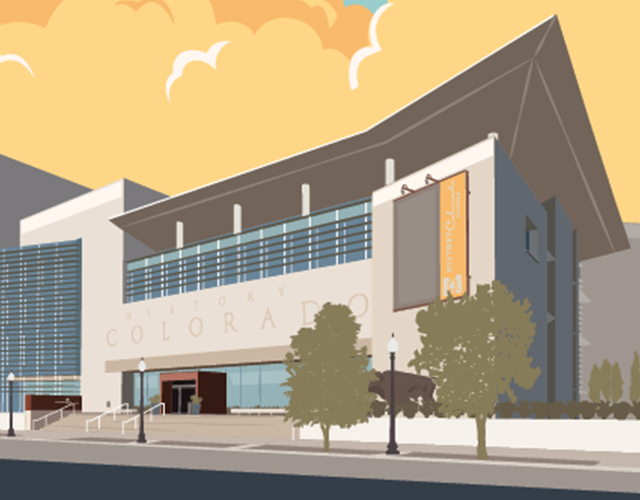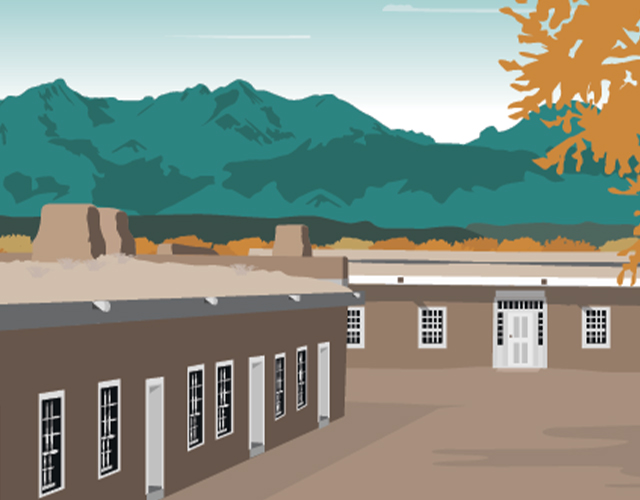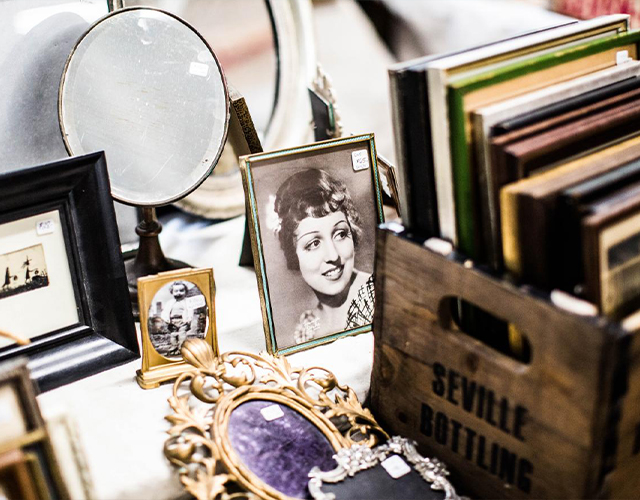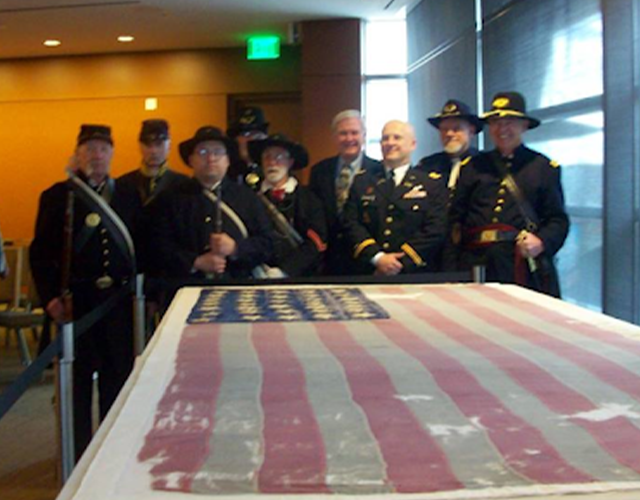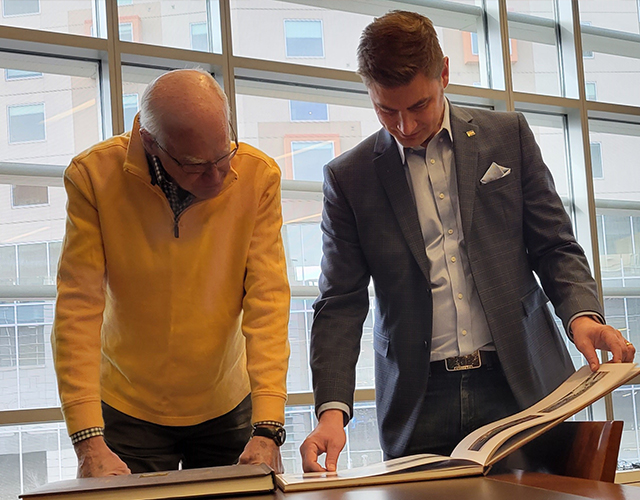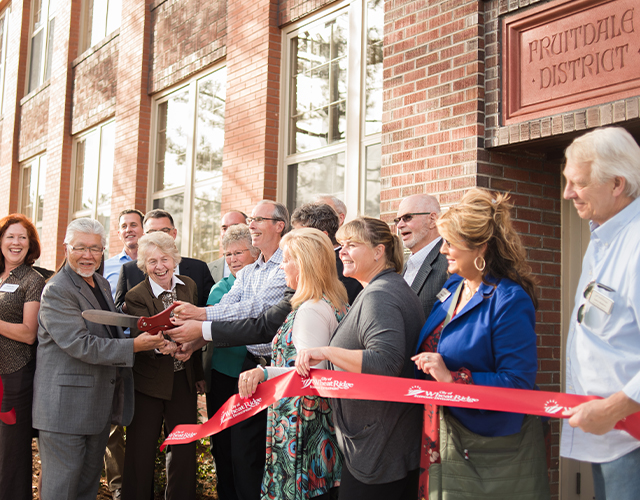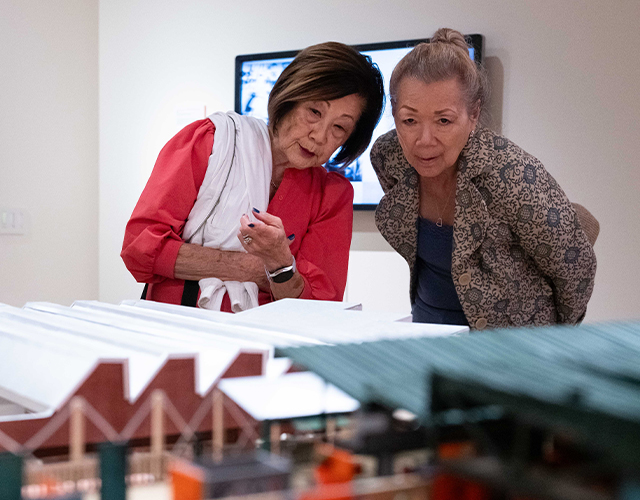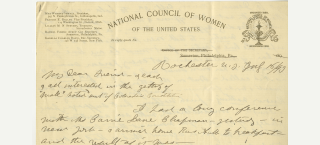
Current Projects
Documentos sobre las Familias Aguayo y Arellano | Aguayo and Arellano Family Papers→
Los Papeles de la Familia Aguayo contienen materiales relacionados con el activismo social y religioso de Marciano y Jovita Aguayo entre 1920 y 1940. Los documentos y artículos de la familia están relacionados con la membresía activa de Marciano en el Comité de Celebración del Día de la Independencia de México en la década de 1930 para celebrar la herencia Mexico Americana en las comunidades de Sedgwick, Crook y Fort Collins en Colorado. Los documentos también incluyen los contratos de trabajo de Marciano, certificados, libreta de racionamiento y permisos de trabajo. Los Documentos de la Familia Arellano contienen materiales relacionados a Porfirio Trujillo, el abuelo de Magdalena Arellano Aguayo. Los documentos contienen información de la iglesia a la que pertenecía y su activismo como Penitente, y como organizador de talleres de Ciudadanía Americana donde él proporcionaba libros y daba clases sobre la historia de los Estados Unidos en 1930.
La mayoría de los artículos están en español o en una combinación de español e inglés. Registraremos el texto en el lenguaje original y no necesitamos traducciones. Transcripciones no traducciones. Saber español es útil pero no es obligatorio. ¡Acompaña a nuestra red de voluntarios digitales y ayúdanos a transcribir los documentos de familias en español!
----------
The Aguayo Family Papers contain materials related to Marciano and Jovita Aguayo’s social and religious activism between 1920-40. The family papers and items relate to Marciano's active membership in the Mexican Independence Day Celebration Committee in the 1930s to celebrate Mexican American heritage in the Colorado communities of Sedgwick, Crook, and Fort Collins. Papers also include Marciano’s labor contracts, ration book, and permissions to work.
The Arellano Family Papers contain materials related to Porfirio Trujillo, Magdalena Arellano Aguayo’s grandfather. Items include papers from the church Porfirio attended and his activism as a Penitente, and as an organizer of an American Citizenship workshop where he provided books and classes about the history of the United States in the 1930s.
Most items are in Spanish or a combination of Spanish and English. We will record text in the original language and do not need translations. Transcriptions, not translations. Spanish language skills will help but are not required. Join our Digital Volunteer Network and help us transcribe family papers in Spanish!
Crime Scrapbooks→
(**Caution. The material in these ledgers may include graphic imagery and historically offensive language.**)
These ledgers were created and compiled by Sam Howe, a 19th-century Colorado lawman. In an attempt to apply organization, he began scouring local newspapers, meticulously cutting out all crime-related articles, and pasting them into large scrapbooks with each article given a unique, identifying stamp number. Howe kept alphabetized lists of names and crimes as well as their corresponding article stamp. In addition to these article books and indexes, Howe kept a “murder book” in which he organized photographs, newspaper clippings, and information regarding murder cases in the Denver area. This collection of ledgers was used extensively not only by the Denver police, but out-of-state law enforcement as well.
This material creates national research opportunities that could reveal new findings about the ways law enforcement responded to crimes over time; the effect of societal change on laws and the justice system; the role of newspaper sensationalism on criminal trials; public perceptions of crimes and criminals; and the impact of economic change, social conditions, and immigration trends in relation to crime. With your help transcribing them, we can preserve this legacy and allow easily searchable access to this collection. Join our Digital Volunteer Network and help us transcribe scrapbooks created by Denver's first detective!
FAQs
- How do I get started?
-
1. Click on the “Register” tab to create an account using the format "Firstname-Lastname" (if you’d prefer to volunteer anonymously you can skip this step). *Signing in allows you to participate in discussions and allows us to give you credit for your work. To track your volunteer hours please fill out this form for access to our volunteer portal.

2. Sign-In. If you already have an account, sign in with the username and password you created.
3. Be sure to read the Tutorial and the Field Guide first because it will help you get started.
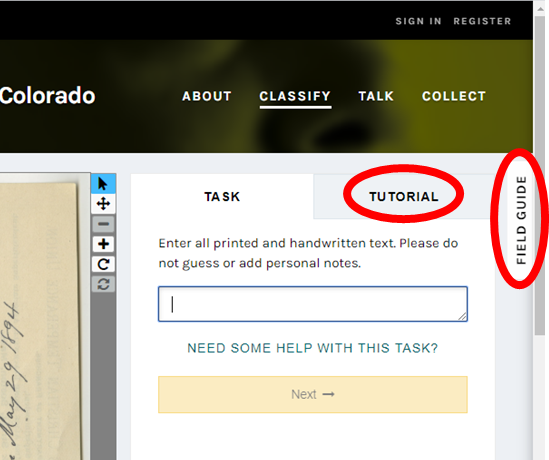
4. Click on the “Get Started” button to start volunteering!
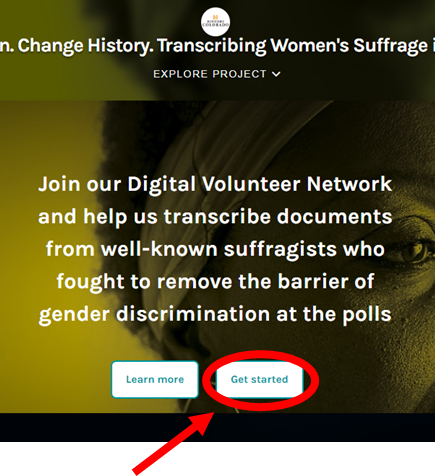
- Do I have to register to help?
-
No, registration is not required but does help us to thank you and give you credit for your work. If you do not want to register, you can simply skip to the “get started” button.
- What will happen to the transcriptions?
-
History Colorado staff will import the project information into the museum collections database (h-co.org/collections) and it becomes searchable.
- Who should I contact for more information?
-
For information about volunteering at any one of our statewide History Colorado sites contact emily.dobish@state.co.us. For information about donating items and the collection contact curator@state.co.us.
- Why do these documents need to be transcribed?
-
Modern technology, in particular Optical Character Recognition (OCR) which is the ability to convert images or scans into text, is not able to recognize older text or handwriting because the handwriting is unpredictable and not uniform or the text is faded or of poor quality. In order to be able to search the content of the documents, the handwriting needs to be transcribed.

 Membership
Membership Donate
Donate